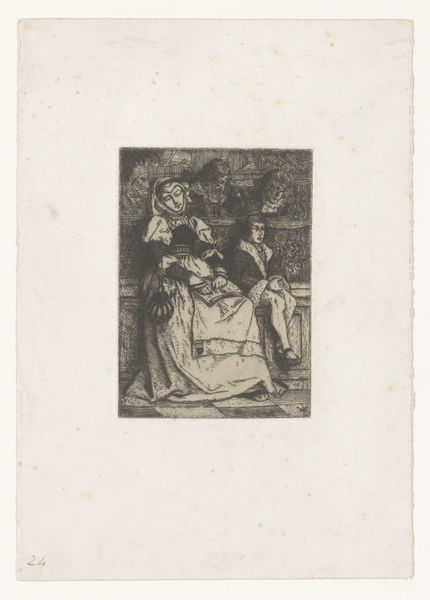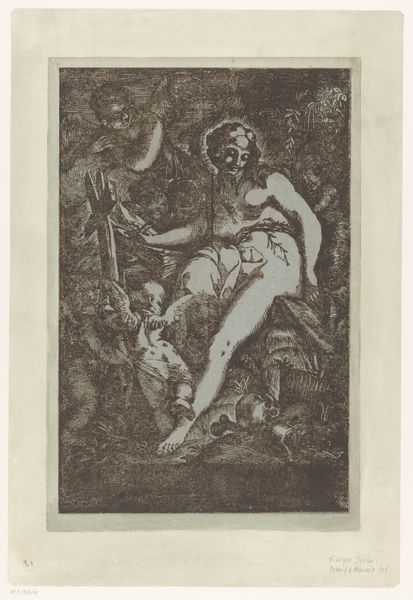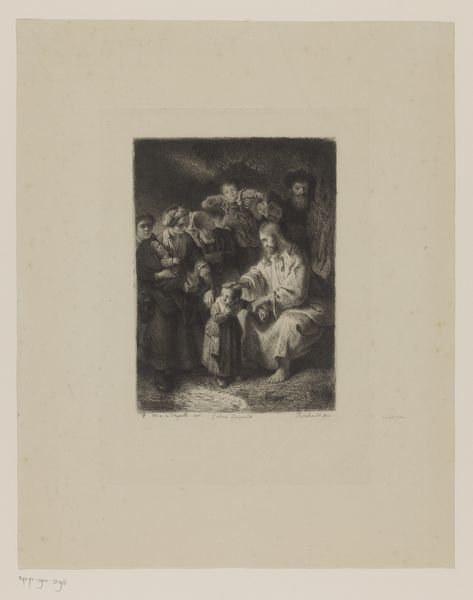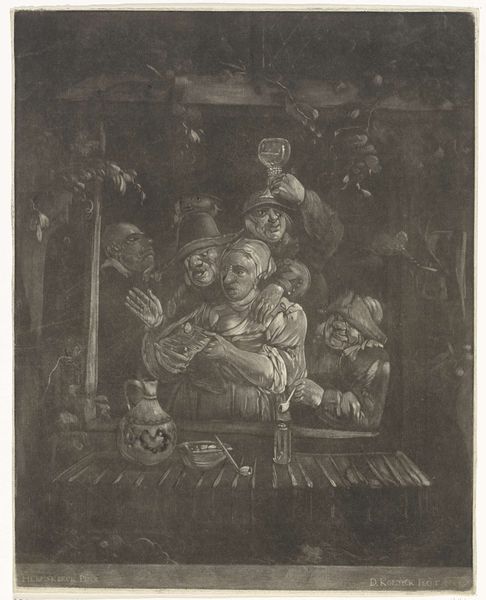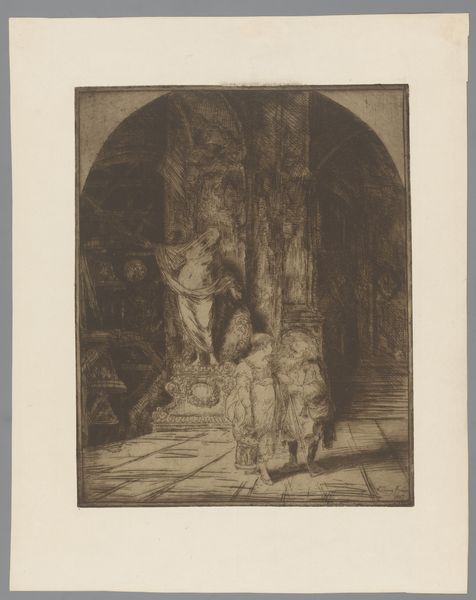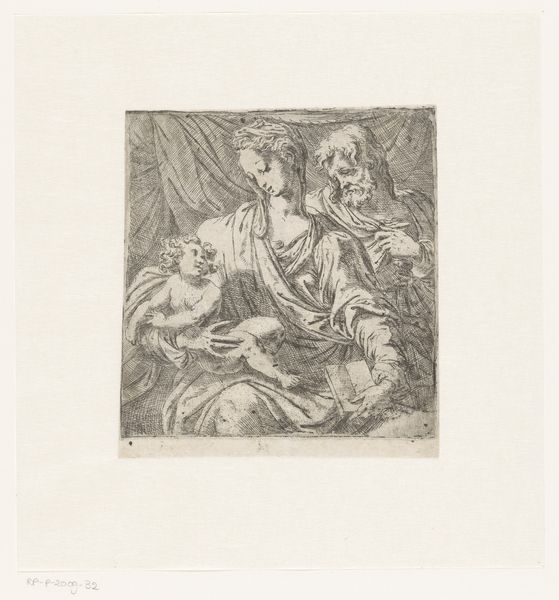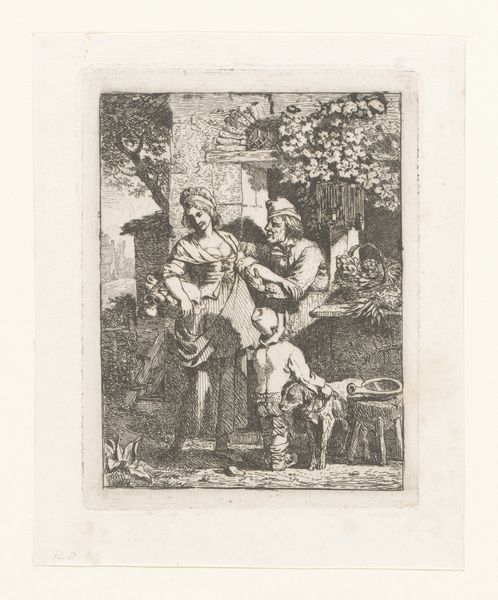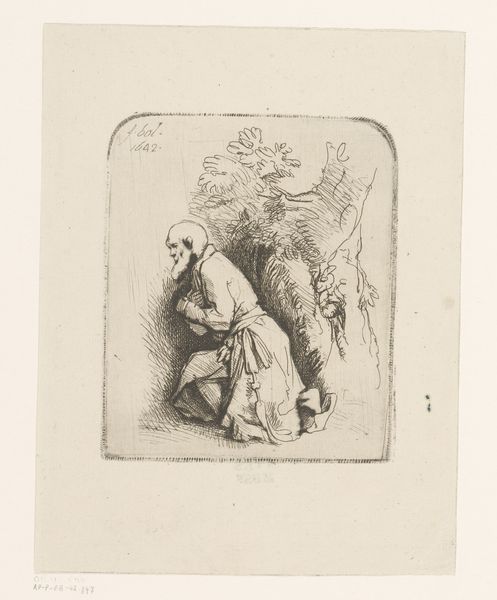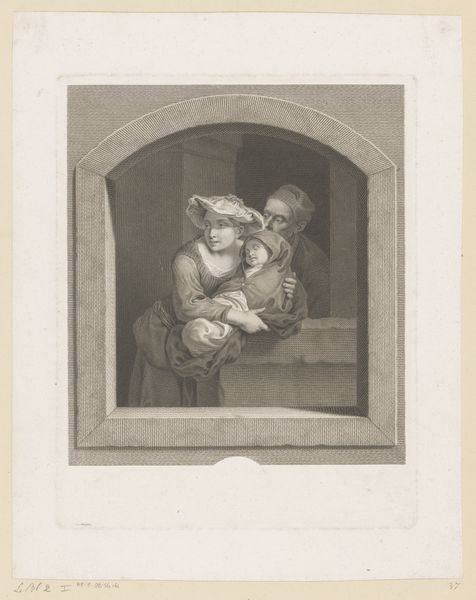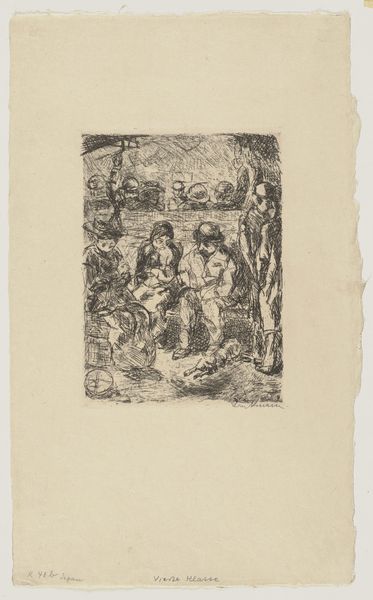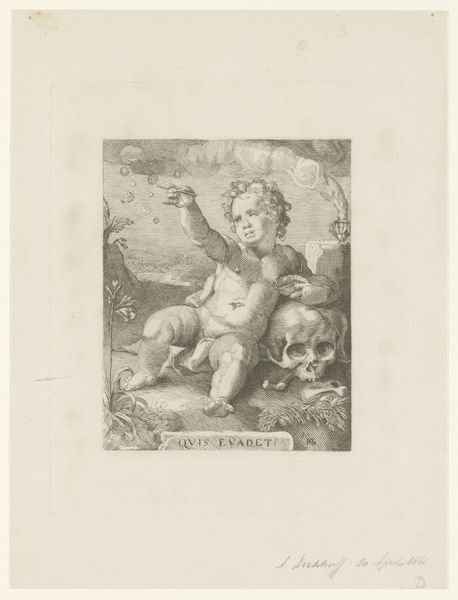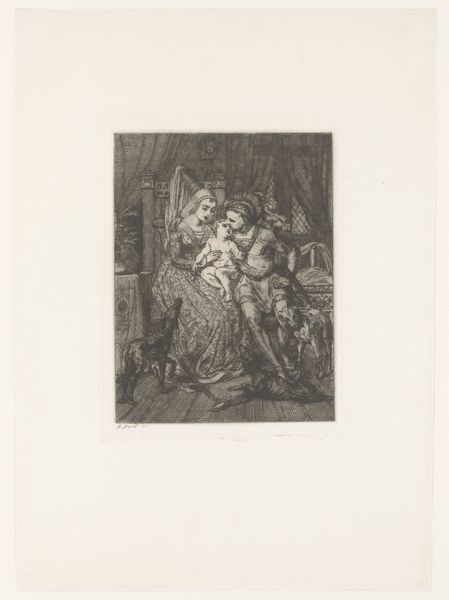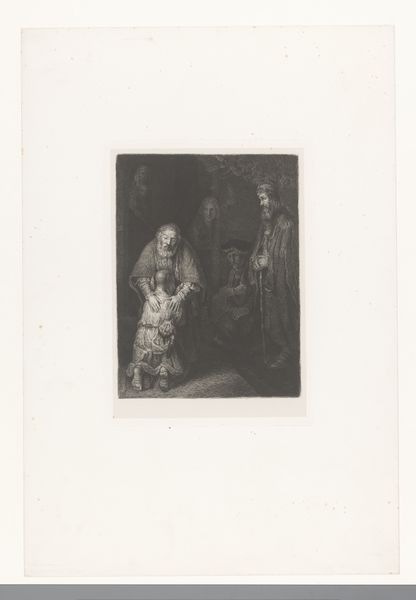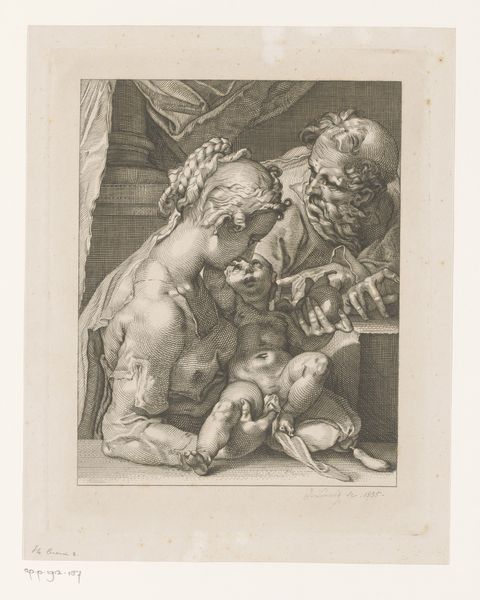
print, engraving
#
portrait
#
mother
#
baroque
# print
#
old engraving style
#
figuration
#
pencil drawing
#
genre-painting
#
engraving
Dimensions: height 178 mm, width 139 mm
Copyright: Rijks Museum: Open Domain
Curator: This is a print titled "Woman with children in a decorated window," created in 1739 by Christian Wilhelm Ernst Dietrich. It’s currently held in the Rijksmuseum collection. The medium is engraving, and the composition is dominated by a mother and her children framed within an ornate window setting. What are your first impressions? Editor: Immediately, I'm struck by its air of theatricality. The window isn't just a window; it's a proscenium arch framing a domestic scene, complete with draping fabric and an almost baroque extravagance. It feels staged, yet intimate. Curator: Precisely. That tension is key. Windows in art often symbolize transitions and different states of awareness. This image overlays themes of childhood, motherhood, and domesticity within a grand framework. Note the relief sculpture at the base depicting infants. They mirror the living children, echoing themes of innocence and perhaps mortality. Editor: I see that now – the sculpture gives the print a didactic dimension, an explicit cultural narrative about family. But consider also the historical context. Genre scenes like this were becoming popular. They reflect the rising middle class and its celebration of domestic virtues, so there might be an implied idealization of motherhood here as well. Curator: Indeed. The idealized representation speaks to the power of imagery to both reflect and construct social values. Notice how the mother's gaze is directed at the viewer. In iconographic terms, is she inviting us into the domestic space, or is she displaying the virtue and prosperity contained within? Editor: It's probably a mix of both, right? Inviting, but also asserting. I find the overall image potent in how it reveals the public role of private life – how domesticity becomes a stage for demonstrating social standing and cultural values. Curator: It's a visual emblem that captures evolving attitudes toward family life, shaped by and also shaping the era's socio-political currents. These symbols can have real and long-standing consequences. Editor: An engraving such as this has helped us see how the political can live within the private and the subtle. I will not look at my neighbors’ yards or houses the same way.
Comments
No comments
Be the first to comment and join the conversation on the ultimate creative platform.
